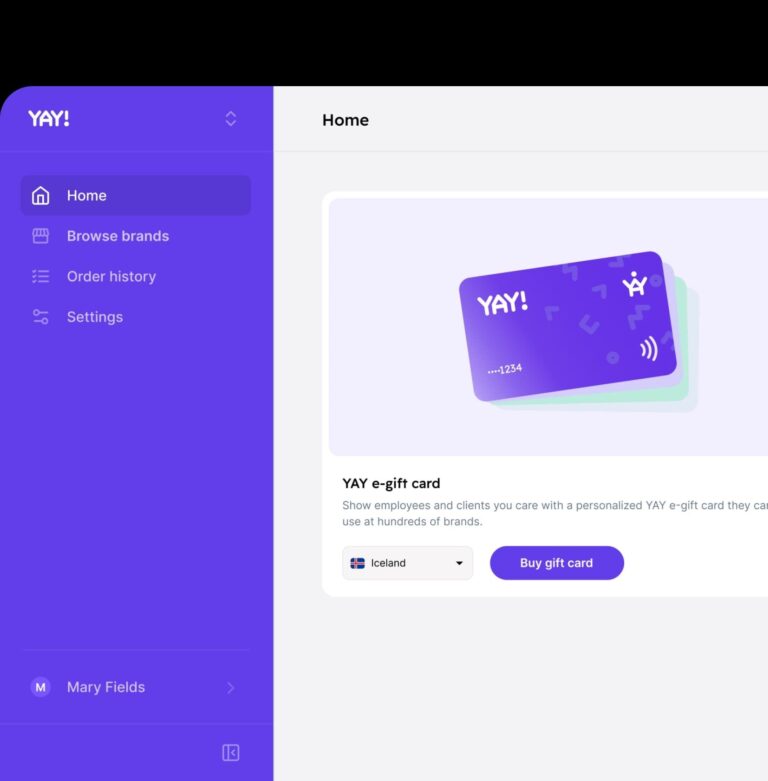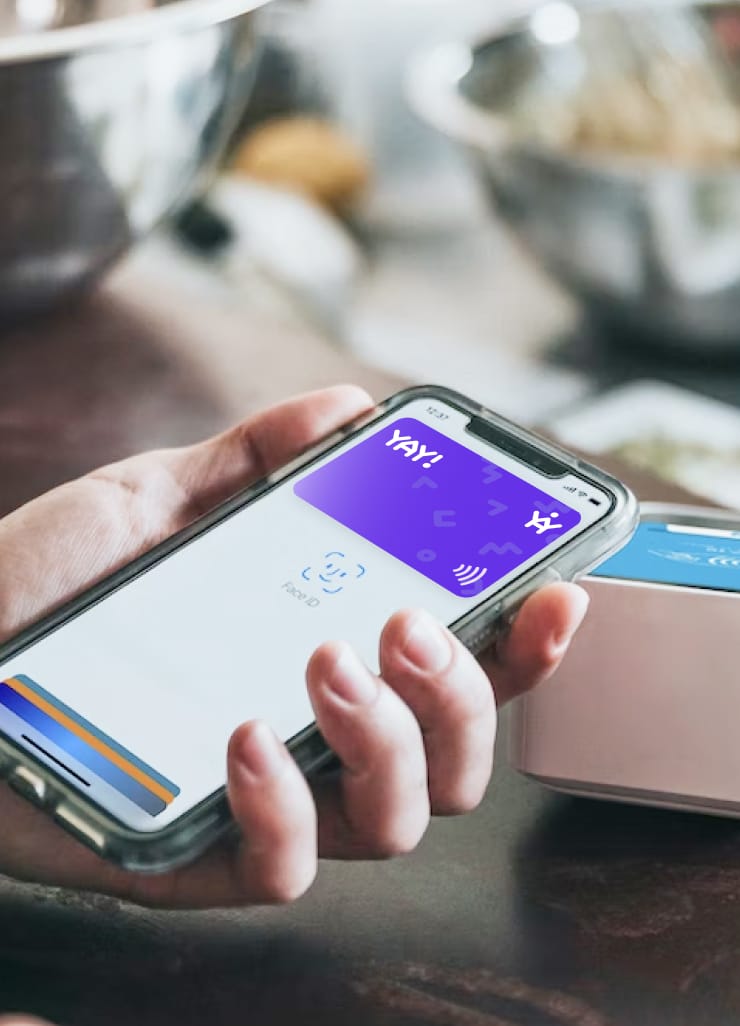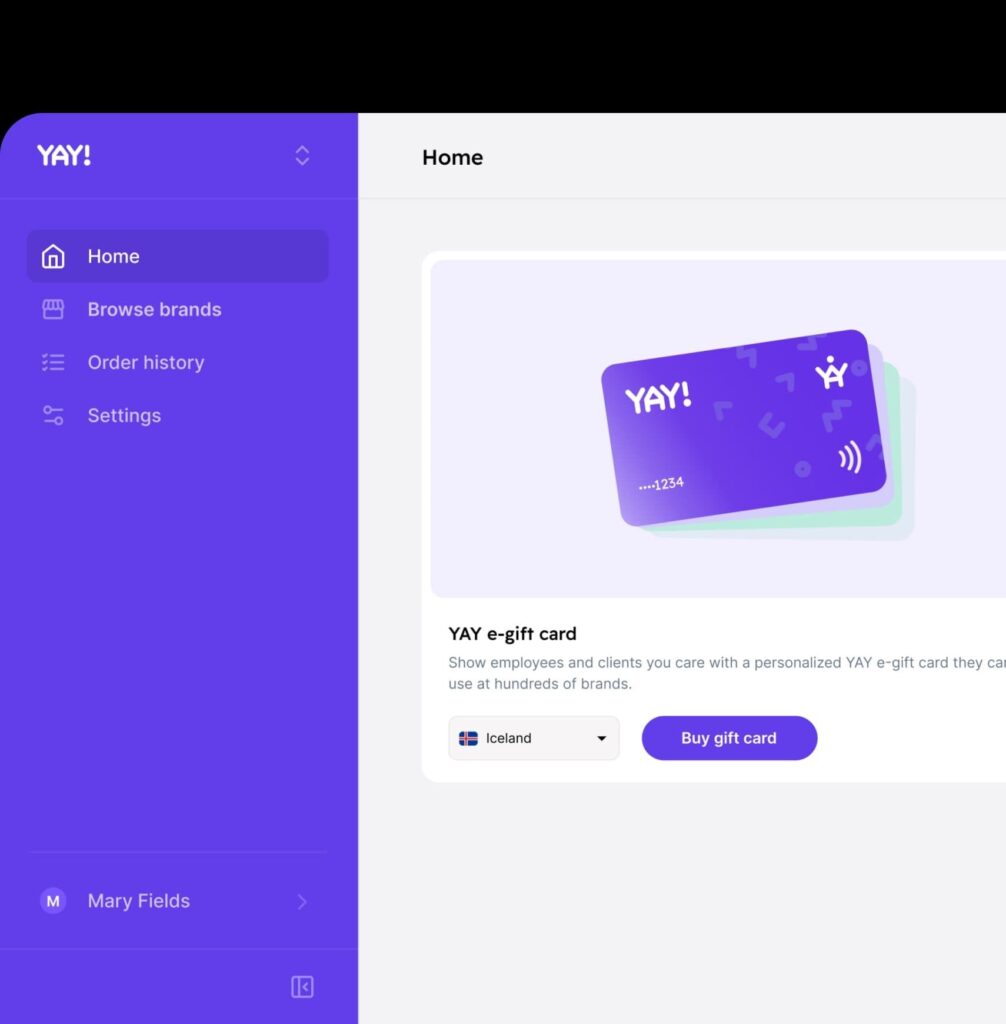In today’s fast-paced, digital-first world, companies are continuously looking for innovative ways to build and retain customer loyalty. One tool that has proven to be effective across a wide range of industries is virtual gift cards. Easy to distribute, track, and redeem, virtual gift cards not only enhance the customer experience but also offer businesses a unique way to engage with their audience.
In this post, we will explore how virtual gift cards can help businesses boost customer loyalty and engagement, highlighting case studies from different industries to showcase their impact.
Why Virtual Gift Cards Matter
Virtual gift cards offer several advantages over their physical counterparts:
Instant Delivery: Virtual gift cards are delivered electronically, providing immediate gratification to the recipient. This speed of delivery creates a more seamless and enjoyable experience.
Personalization: Virtual gift cards can be personalized with messages, themes, and designs, allowing businesses to create a stronger emotional connection with their customers.
Convenience: Customers can store and redeem virtual gift cards via their mobile devices, increasing the ease of use and enhancing the customer experience.
Cost-Effective: Companies save on production, shipping, and storage costs associated with physical cards, making virtual gift cards a more efficient option.
Now let’s dive into how businesses across different industries are leveraging virtual gift cards to drive customer loyalty and engagement.
1. Retail Industry: Enhancing Customer Retention
In the retail sector, loyalty programs are essential for customer retention. Virtual gift cards can be integrated seamlessly into loyalty schemes, allowing customers to redeem points or receive rewards in a quick and easy manner. Many retailers use gift cards as part of promotions (e.g., “Spend $100, Get a $10 Gift Card”), encouraging repeat purchases.
Case Study: Starbucks
Starbucks has been a pioneer in using virtual gift cards through its mobile app. By offering customers the ability to send and receive virtual gift cards through email or text, the company has created a convenient and engaging way to boost both purchases and customer retention. Coupled with its rewards program, these virtual cards have become a key component of Starbucks’ customer engagement strategy, allowing it to stay ahead of the competition in an increasingly crowded market.
2. Hospitality Industry: Building Lasting Relationships
In the hospitality industry, virtual gift cards are used to enhance guest experiences and drive repeat business. Hotels and resorts can offer these cards as part of loyalty programs, for special occasions, or as compensation for service recovery situations.
Case Study: Marriott Bonvoy
Marriott Bonvoy has introduced virtual gift cards as part of its member benefits, allowing customers to gift friends or family members stays at various properties. These cards can be used toward accommodation, dining, and spa services. By offering flexible redemption options, Marriott creates an ongoing engagement with its guests, encouraging them to stay loyal to the brand.
3. eCommerce: Encouraging Repeat Purchases
For eCommerce businesses, virtual gift cards are a powerful way to encourage repeat purchases and attract new customers. Online retailers can offer virtual gift cards as incentives for customer referrals, or even include them in email marketing campaigns to re-engage inactive customers.
Case Study: Amazon
Amazon offers a robust virtual gift card system that allows customers to instantly send gift cards via email, text, or through the app. The simplicity of purchasing and redeeming these cards makes them an attractive option for customers. Amazon also leverages virtual gift cards in its referral programs, encouraging existing customers to introduce new buyers, thus increasing both engagement and sales.
4. B2B Sector: Employee Rewards and Client Engagement
In the B2B world, companies often use virtual gift cards as part of their employee recognition programs and as a way to engage clients. By offering digital gift cards for reaching performance milestones or as holiday gifts, businesses can build stronger relationships with both employees and clients.
Case Study: YAY Moments
YAY Moments offers a virtual gift card platform designed to streamline employee rewards and client engagement. By providing businesses with the ability to distribute branded virtual gift cards, YAY Moments helps companies reinforce relationships and encourage positive behaviors. Whether rewarding employees for a job well done or offering incentives to clients, virtual gift cards serve as a powerful engagement tool.
5. Entertainment: Elevating the Customer Experience
The entertainment industry uses virtual gift cards to enhance the customer experience and foster long-term engagement. Movie theaters, streaming services, and gaming platforms offer virtual gift cards as gifts or rewards for loyal customers, creating opportunities for future purchases.
Case Study: Netflix
Netflix offers virtual gift cards as part of its subscription model, allowing customers to prepay for memberships or gift subscriptions to friends and family. By using virtual gift cards, Netflix taps into its global audience, providing a simple way for users to spread the service to others, thus increasing customer acquisition and retention.
Wrapping-up
Virtual gift cards have proven to be an effective tool for driving customer loyalty and engagement across various industries. From retail to hospitality, eCommerce to entertainment, businesses are discovering that offering virtual gift cards not only increases customer satisfaction but also creates lasting relationships that drive repeat purchases and brand loyalty.
Whether used as part of a loyalty program, as a reward for referrals, or simply as a thoughtful gift, virtual gift cards provide a unique way for companies to strengthen their connection with customers in a cost-effective and engaging manner.
By integrating virtual gift cards into your business strategy, you can stay ahead of the competition and build a loyal customer base that keeps coming back.





